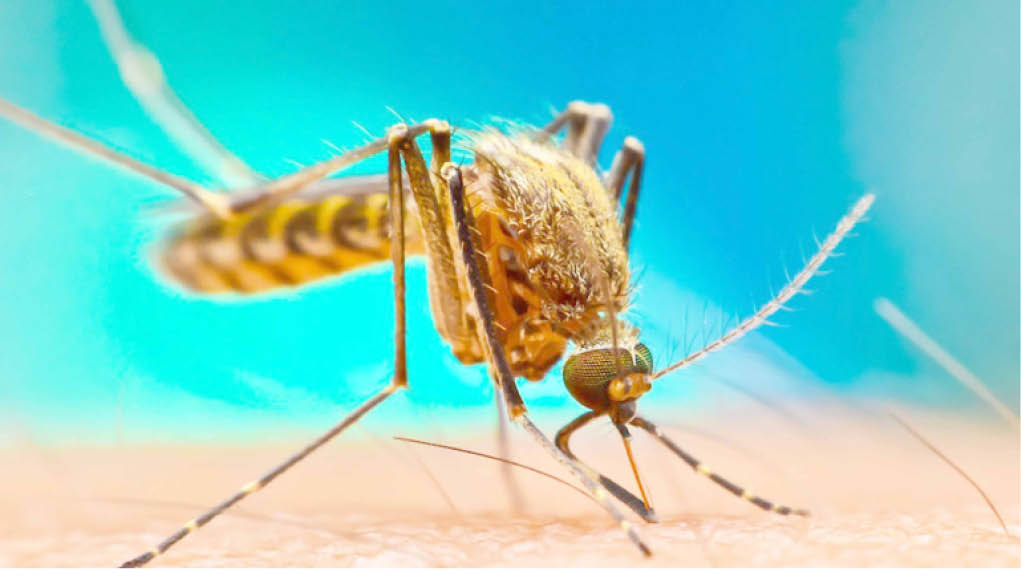The World Health Organization has called for a “massive, urgent” effort to get the new malaria vaccine into the arms of African children, as it warned that about 180,000 more people were dying annually from the disease than had previously been thought.
Dr Pedro Alonso, director of the WHO’s global malaria programme, said the RTS,S vaccine, recommended for widespread rollout in October, represented a historic opportunity to save tens of thousands of lives, mostly those of under-fives in sub-Saharan Africa.
But he warned that the global community risked “massive failure” if funding commitments aimed at boosting production and helping deployment of the vaccine were not rapidly made.
“What I think is the real barrier [is] international solidarity,” he said. “Is the world going to allow that there is a first malaria vaccine that can save the lives of tens of thousands of African children every year and they’re going to let it sit on a shelf? Or are they going to step up?”
The British pharmaceutical company GlaxoSmithKlein, which developed the RTS,S vaccine, has committed to donate up to 10m doses for use in the pilot programmes already under way, and to supply up to 15m doses annually.
However, with more than 240m cases globally last year, the potential demand could reach 80 to 100m doses annually, Alonso warned. “Therefore, this is a prime example of where international mechanisms will need to come into play,” he said.
“A vaccine that could save somewhere between 40 and 70-80,000 lives every year, of African children, is something that needs to be treated with the utmost ambition and sense of urgency. And therefore, a slow, gradual scale-up, if you ask me, would not be acceptable. This needs to be a massive, urgent operation to ensure that we can reach as many children as possible and as soon as possible.”
He added: “If the global health community does not respond to this challenge, it will represent a massive failure. I cannot imagine how different leaders, leaders of philanthropy or of financing institutions, are going to go to Africa and advocate for efforts to prevent childhood deaths if they don’t, first and foremost, support the deployment of this vaccine.”
Last week, the global vaccine alliance, Gavi, said its board had approved an initial $155.7 million (£117m) for the rollout of RTS,S. The funding would help the introduction, procurement and delivery of the vaccine for eligible countries in sub-Saharan Africa from 2022 until 2025, it said.
Dr Abdourahmane Diallo, CEO of the RBM Partnership to End Malaria, said the announcement would give the private sector “a crucial motive to scale up” the rollout.
“We now call on leaders to step up investment to accelerate the development and delivery of more effective, transformative tools to combat the ever-evolving malaria parasite,” he said.
New figures released by the WHO on Monday underlined the scale of the problem, with a new, “more precise” method of counting estimating that 627,000 people died of malaria last year, 180,000 more than the total would have been according to the old methodology.
The world finally has a malaria vaccine. Now it must invest in it
The vast majority of all malaria deaths – 96 per cent – were in sub-Saharan Africa.
In its annual malaria report, the WHO said the “doomsday scenario” some had predicted at the beginning of the Covid-19 pandemic – that deaths from malaria would double as a result of disruption to treatment and services – had not materialised.
Nonetheless, it said, deaths had risen by nearly 70,000 last year, an increase of 12 per cent, of which nearly 50,000 were attributable to disruptions during the pandemic. One main cause of disruption was that more than a quarter of insecticide-treated bed nets – the backbone of WHO efforts to combat malaria – were not distributed in 2020.
Faced with a slowing of progress in the fight against malaria, the WHO believes the vaccine could be a crucial new weapon, even though questions have been raised over its limited efficacy. Over four years of trials, RTS,S was found to prevent 39 per cent of malaria cases and 29 per cent of severe malaria cases.
But Alonso rejected concerns. “A reduction of 30 per cent [in] severe cases of malaria means a massive public health impact, larger probably than any other vaccine against any other disease being used right now,” he said.

 Join Daily Trust WhatsApp Community For Quick Access To News and Happenings Around You.
Join Daily Trust WhatsApp Community For Quick Access To News and Happenings Around You.


